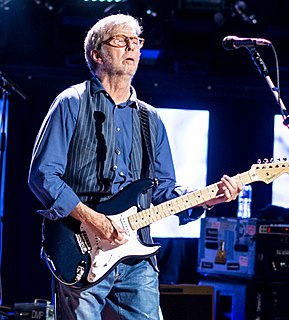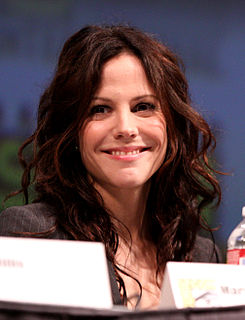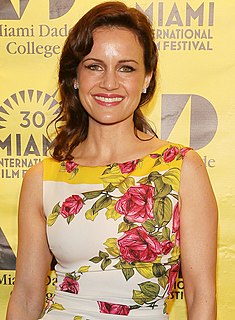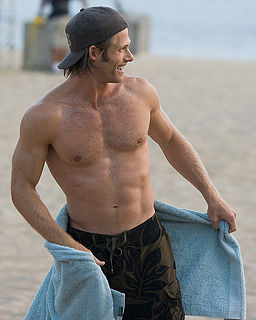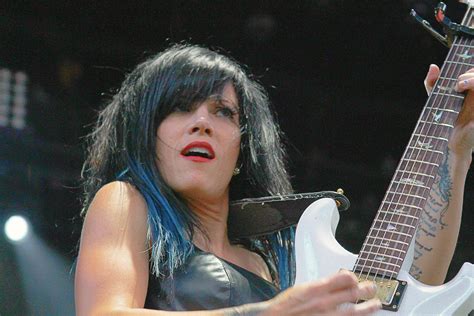A Quote by Eric Clapton
Very much like that, and very much a loner, do you know and I didn't fit really into sport or all kind of group activities as a kid, I couldn't find a niche. And music was not really part of the kind of village curriculum it would, you know.
Related Quotes
I really like the director [for Weeds]. I don't know if you've spoken to him yet but he's really, really intelligent. He was just really kind when I met him and nice and really told me why I should play the part...and kind of really didn't argue with him. He's just really, really smart and assembled these really great people. I felt like he really knows how to enlist his intelligence to get you - I don't know - he's really hard to argue with I find.
When I was growing up, I didn't really know much about being popular or cliques or anything like that. In elementary school and middle school, you start to kind of realize what it's all about. There are cool kids, and then there's you, and you're just trying to figure out where you fit in.I learned a lot about acceptance and rejection,Those are the themes that you'll find spread throughout my music and weaved in throughout all of the lyrics. I really know what it's like to be accepted, and I also know what it's like to be rejected. And those are lessons I learned in Wyomissing.
I was a really, really serious kid. And a really kind of controlling kid. Like I had things that, now, people would say are like - there's a name for many disorders as we know - but I would say, "If I pick this rubber band, then this will happen." It was that kind of want to control things, which I think all kids have to some extent.
In terms of exploring an identity in the country music world, what I realized very quickly was that there are people who have been performing country music since they were kids. It's very much a part of who they are; very much that jazz and blues are a part of who I am, because I grew up listening to and playing that kind of music.
The thing I find really scary about ghosts and demons is that you don't really know what they are or where they are. They're not very well understood. You don't know what they want from you. So it's the kind of thing you don't even know how to defend yourself against. Anything that's unknown and mysterious is very scary.
I'm very much inspired by the Latin music, especially the romantic boleros. Not that when I sit to write a play I listen to boleros. But I think it's part of my DNA, it's part of my upbringing. I grew up in a house where this is the kind of music my parents used to listen to. This is the kind of music I would even hear in my neighborhood. I think that sort of romanticism is part of the culture.
I'm not much of a self-promoter or anything. It's not something I feel comfortable doing. But sometimes I would get frustrated, I'd think, "You know, this is a good book, how come no one is paying attention to it?" So it's nice to have some recognition. I don't write to put it in a drawer, I hope that people see it. But what am I willing to do for that? I struggle with that a little bit. I try to be accommodating, but I'm pretty much a loner. I'll say this, and it'll sound like bullshit, but it's not: I don't really pay attention to this stuff very much.
Barry Crump wrote a lot of books and they were really special. They were kind of the quintessential, mild for the most part, kind of southern man, kind of the true heart of what it meant to be a Kiwi kind of farmer; very kind of outdoor man living off the land. That kind of thing, you don't see so much anymore these days with everyone being metrosexual and lattes and laptops.
'Greatest American Hero,' I really dug that as a kid because it had an alienation to it, where he was given a gift and didn't know why, and yet he was forced to do something with it, and he was very much an out-of-place character who was trying to cope with his own surroundings, and I can kind of relate to that guy.
Greatest American Hero, I really dug that as a kid, because it had an alienation to it, where he was given a gift and didn't know why, and yet he was forced to do something with it and he was very much an out-of-place character who was trying to cope with his own surroundings, and I can kind of relate to that guy.
Yeah, when you work with somebody that famous everybody wants to know what are they like or - but I know some of the movies that I know because they're more like NOBODY'S FOOL or like that, because I don't really watch the big R movies, I haven't really seen them so much. I loved him [Bruce Willis] from his TV show and some of the smaller movies he's done. The bigger movies I start to space out in, like, there just so, I don't really watch those kind of movies so much.
I put a lot of effort in creating something fictional, yet very personal, because Shook is a defining part of me and my music: the Shook entity is much like the Batman or Superman comics characters. I like the idea that I can have this image that represents a part of me, but isn't really me, kind of like an alter ego.
I live part-time in a cabin in Colorado up in the mountains and part-time on a ranch in central Texas - but do I really know how to go brand a cow, or do I really know how to go rappelling down a cliff? No. I do the recreational, half-assed version of all these manly activities and then try to keep that kind of Zen masculinity, like, "I'm a man of nature."
